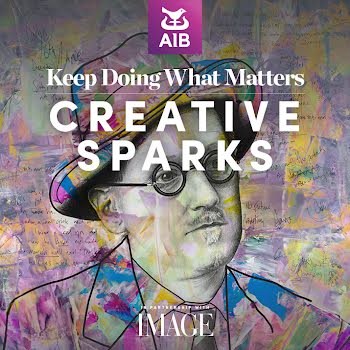
The Great Recalibration: Letting go of the ‘love your work’ delusion
With 82 per cent of Irish professionals considering a career move within the next six to 12 months, it may be time to re-examine our most deeply-held beliefs about the type of relationship we should have with our work, writes Ciara McVeigh.
Do you love your work?
My father was a taxi driver for 27 years. One night, a few years short of his state pension, he came home and said he was finished. He couldn’t go back to driving the taxi, not one more night. And he was as good as his word. He simply turned his phone off and that was the end. People locally thought he had died.
My mother worked many jobs over the years, mostly local retail and a brief stint as a home help for the elderly. She was also instrumental in the running of my father’s taxi business, but you couldn’t call any of it a career. I know she doesn’t. I asked her recently how she felt about those roles. “I hated it all.”
Our parents worked in jobs so that we could have careers. They thought we’d have more money, more leisure and be happier than they were. But it seems as though our issues with work are more complex than ever.
According to career and coaching psychologist Sinéad Brady, the traditional concepts of work that we grew up with have transformed beyond recognition. “The way we work has changed fundamentally in the last 20-25 years, and the boundaries about the way we live and work have crashed dramatically, like they never have before.”
The advent of technology has changed where we work, and when – and consequently how we feel about it. My father knew that his work was done when the engine of his taxi was turned off.
Working from home on a laptop makes those boundaries much less clear. With that lack of boundary, Sinéad explains that we’re developing a new feeling of entitlement around our work. “People have begun to feel that if I’m going to be taking my work home with me, there’s a developing sense that I want to be able to enjoy it.”
The way we work has changed fundamentally in the last 20-25 years, and the boundaries about the way we live and work have crashed dramatically, like they never have before.
This internalised expectation to enjoy what we do is convenient for our employers. I’ve worked in companies where the insane emotional demands for public support for my employer far outweighed the demands of the actual job. Sinéad agrees.
“It suits some organisations to foster this narrative around loving your career, as it means you will pour yourself into it. It also means that your career becomes part of who you are. There’s nothing wrong with that, because your career is part of your identity, but when it becomes your entire identity… that’s where we have an issue.”
The pandemic has accelerated these emotional changes in the world of white collar work. After two years of Zoom fatigue, the agony of homeschooling and nosediving mental health, the changes in our world forced by the pandemic are, in turn, forcing us to reflect on how we really want to spend our time. The Great Resignation is here.
Both in the UK and US, record numbers of people have signalled their intention to quit or move jobs. In the UK, a 2021 study found that 38 per cent of respondents intended to quit their jobs within six months, while in the US four million people had already done so by April, a 20-year high. By November, that record had already been broken, by a new high of 4.5 million.
The trend is being felt by Irish markets too. Recruitment consultancy Morgan McKinley predicts that 82 per cent of Irish professionals are considering a career move within the next six to 12 months. According to its 2022 Irish Salary Guide, salaries in some sectors of the Irish jobs market could increase by between five and ten per cent this year, and up to 15-20 per cent for niche roles.
Our parents worked in jobs so that we could have careers. They thought we’d have more money, more leisure and be happier than they were. But it seems as though our issues with work are more complex than ever.
Behind the numbers, Johanna Fullerton, business psychologist and MD and founder of SEVEN, Psychology at Work, believes this marks an important reflection point.
“I like to think of it as ‘The Great Recalibration’, with many stepping back and creating the space to deeply ask themselves, ‘What is it that I really want from this life of mine? What is it that I care deeply about? What is truly important to me?’”
As a child, moonlighting after school in my parents’ taxi office, I had early access to the adult world of work. Swathed in second-hand smoke and pretending to do homework on a pull-out sofa, I watched as the drivers streamed in and out constantly for coffee, cigarettes and the thrashing out of personal gripes. I internalised that work was hard and no one liked it but that was how it was for everyone I knew. What mattered was surviving.
Loving your work, or worrying that you don’t love your work, is a modern phenomenon that marks a certain privilege. Having the headspace to ask the question is the preserve of someone at a comfortable distance from survival. I’ve never been hungry a day in my life and my children live like boy kings. But I worry that we’ve punted that needle all the way round. Now, the most gifted people I know are the most strung out, caught up and over-identified with their work.
If we don’t love what we do, and feel badly about that, or we do, in detriment to the rest of our lives, this Great Recalibration could help us reset to a more comfortable middle ground.
Sinéad urges us to think about a fulfilling career in the context of a fulfilling life: “I personally feel really strongly that we need to think about careers in a new way and see them as embedded within our identity. They are part of our identity, but they are not our identity. With that view, it is possible to have a career to love.”
Johanna offers up a different challenge. “I am not sure that the concept of a ‘culture of loving your work’ is the best lens to look through here. Consider instead what it means to have the opportunity in your work to apply your strengths and talents in an area of personal interest, passion or belief. Not every moment in work is a ‘love’ moment, but when we are immersed fully in what we are engaged in, using our abilities to achieve a meaningful outcome – then these are the ‘magic moments’.”
Viewed this way, it becomes easier to separate personal esteem from work. You can appreciate your work, but for me, it remains that love is for your family, your people.
Embrace your work if you must, in the context of a rich life, but you are not what you do and you never were.
This could be where the Great Recalibration can begin to set us free.
Next steps
Resources to help you step back from a career that’s taking over or find a more fulfilling role.
Designing Your Life – Bill Burnett and Dave Evans These two Stanford design professors believe that approaching our lives like designers is the key to a satisfying life. Read their books, watch their TED Talks, or sign up to a workshop, designingyour.life.
Why You Should Stop Searching for Work You Love – Jodi Glickman This TED Talk by the CEO of a corporate training company highlights how rare it is for us to find work that we are truly passionate about. Instead, she argues, there are other ways to find fulfilment within our roles, ted.com.
The Case Against Loving Your Job – The Ezra Klein Show This episode of a popular The New York Times podcast delves into the current situation: The Great Resignation, burnout, and how our approach to work is changing, nytimes.com.
Work Won’t Love You Back by Sarah Jaffe In this book, journalist Sarah Jaffe examines how our desire to love our work can leave us open to exploitation, from low wages to enduring “always on” work cultures.
Ciara McVeigh is a freelance writer and occasional journalist. Her essays on life, work, people and place can be found at ciaramcveigh.com. This article originally appeared in the Spring issue of IMAGE Magazine.























